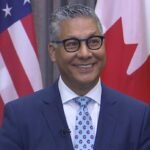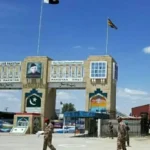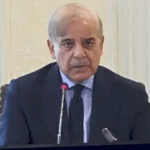NEW DELHI: Veteran Indian nuclear scientist dr Rajagopala Chidambaramwho was the architect of ‘Operation Laughing Buddha‘ (India’s first nuclear test at Pokhran in 1974) and ‘Operation Shakti‘ (1998 nuclear tests), died on Saturday in Mumbai at the age of 88.
Born in the erstwhile province of Madras in 1936, Chidambaram, an alumnus of Presidency College, Chennai and the Indian Institute of Science, Bengaluru, held several prestigious positions throughout his illustrious career, including chief scientific advisor to the Government of the Union (2001-2018). ), director of Bhabha Atomic Research Center (1990-1993), chairman of the Atomic Energy Commission and secretary of the Department of Atomic Energy (1993-2000). He was also chairman of the board of governors of the International Atomic Energy Agency and was also a member of the IAEA Commission of Eminent Persons, contributing to the organization’s vision for 2020 and beyond.
In 1974, when India secretly transported the plutonium used in the nuclear explosion, Chidambaram sat in the protected chest carrying the “plutonium ball” while it was transported from Mumbai to Pokhran. A firm believer in self-reliance, Chidambaram strongly opposed dependence on imported technology.
“Deeply saddened” by his passing, Prime Minister Modi said in a post on India. “He will be remembered with gratitude by the entire nation and his efforts will inspire generations to come.”
As a world-class physicist, Chidambaram’s research in high pressure physics, crystallography and materials science significantly advanced the scientific community’s understanding of these fields. His pioneering work in these areas laid the foundation for modern materials science research in India.
Paying tribute, Department of Atomic Energy Secretary Ajit Kumar Mohanty said: “Dr Chidambaram was a doyen of science and technology whose contributions boosted India’s nuclear prowess and strategic self-reliance. “His loss is irreparable for the scientific community and the nation.”
Union Minister for Atomic Energy Department Jitendra Singh extended his condolences to Chidambaram’s family. “I am saddened to learn of the passing away this morning of eminent nuclear scientist Dr. Rajagopala Chidambaram, who headed the Atomic Energy Commission of India and played a key role in the development of strategic weapons,” Singh said.
Chidambaram was also instrumental in initiating indigenous development of supercomputers in India and in conceptualizing the National Knowledge Network, which connected educational and research institutions across the country. An ardent advocate of the application of science and technology to national development, he established programs such as the Rural Technology Action Groups and the Society for Electronic Transactions and Security, and emphasized “Coherent Synergy” in India’s scientific efforts. .
In recognition of his exceptional contributions, the nuclear scientist was honored with Padma Shri in 1975 and Padma Vibhushan in 1999. He received honorary doctorates from several universities and was a member of eminent Indian and international scientific academies.
“The nation owes a lot to this brilliant scientific mind, and we will always cherish his tremendous contributions,” Congress president Mallikarjun Kharge wrote in X. Congress general secretary Jairam Ramesh said Chidambaram was one of the titans of science and technology in India for much longer. five decades.





